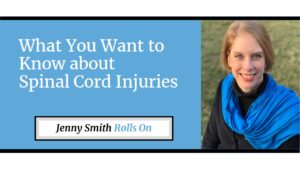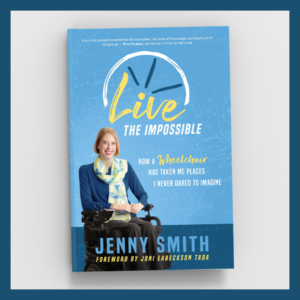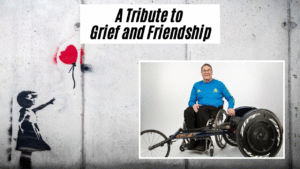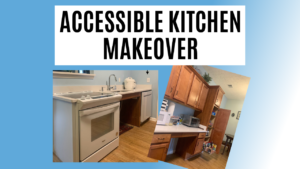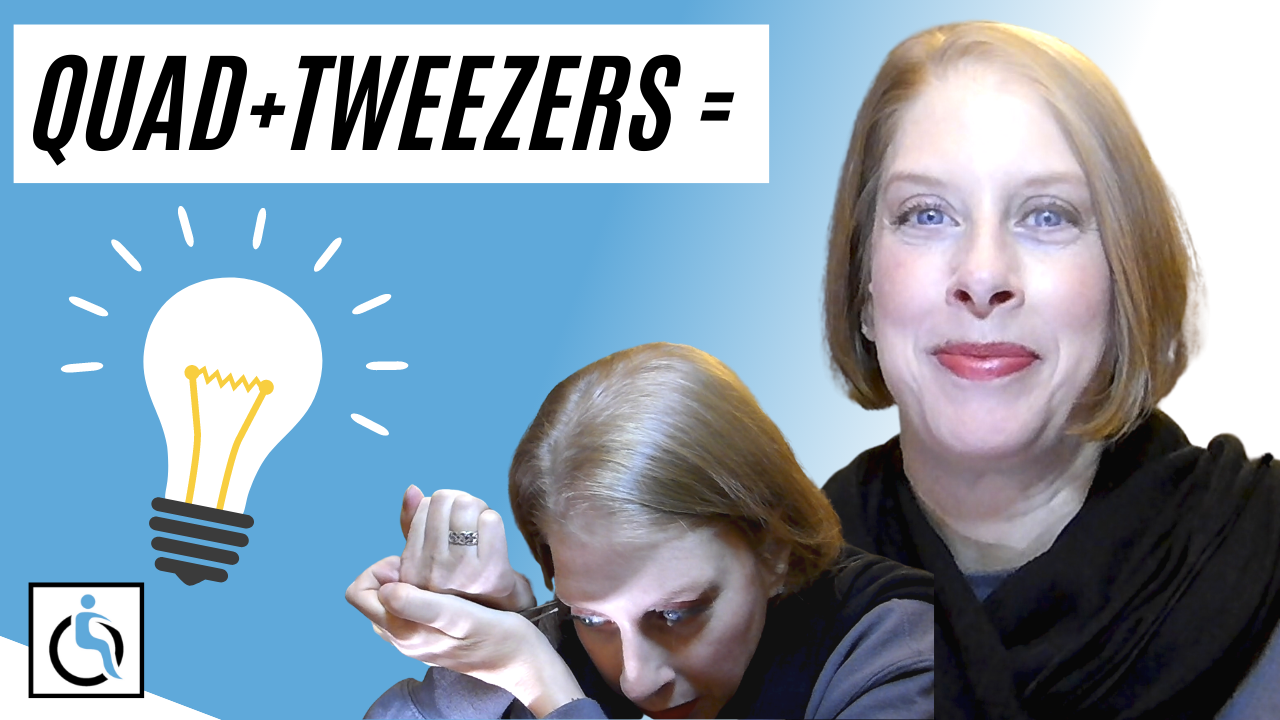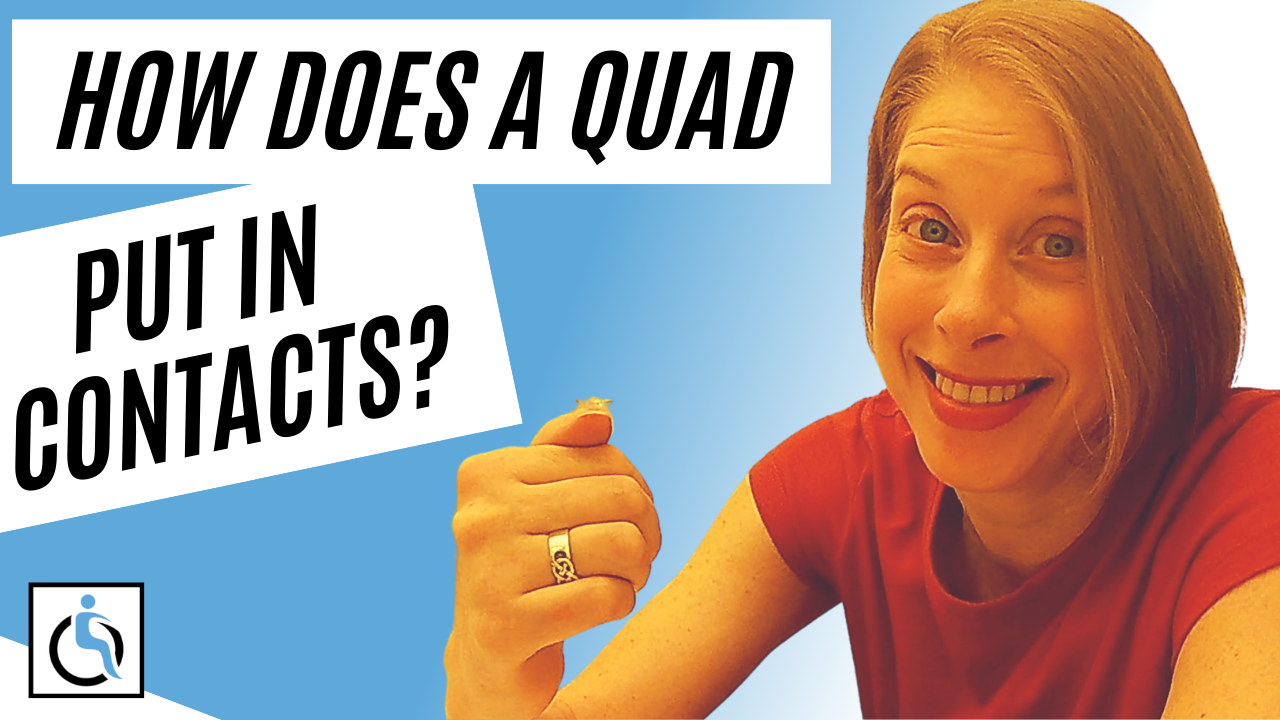Whether a person is confined due to COVID restrictions or trying to heal a pressure sore while in bed, I often read, “What can I do all day long?” I’m experiencing 2020 with the rest of you. In addition, I’ve survived three skin flap surgeries which required months in bed each time. The lessons I learned during my long times of literal confinement to bed apply to our current circumstances with COVID. Therefore, my answer is the same for both situations.
In 1998 I had my first pressure sore and in January 1999 spent three months in bed recovering from a skin flap surgery. Unfortunately, I repeated the surgery and its long bed-bound recuperation in 2000 and 2001. I’ve avoided surgery since then, but often need to spend several days or even weeks healing up a red spot on my tush. (Read how I protect my most valuable asset in this article.)
So what do COVID and recovering from a pressure sore have in common? One must figure out what to do with long periods of time and limited interaction with others.
DISCLOSURE: Any of us who have spent months in bed might tell you ABs (able-bodied folks) to “Suck it up, Buttercup” if you’re complaining about being stuck inside the house. I get it. It’s new. Difficult. It’s no fun. Yet it’s daily life for millions of people with disabilities.
Five Necessary Areas of Health
During my three stints of months in bed, I learned several valuable ways to structure my day to make life bearable. I believe these tips are good whether you’re stuck in bed or confined for COVID. All of these tips fall under the main lesson to keep a structured schedule for your day. Schedule activities that encourage mental, physical, emotional, social, and spiritual health. A schedule helps break up the day and gives you something to look forward to.
1. Get up and going (even if you’re not “up”)
Set an alarm. If you’re able-bodied or able to get out of bed, get going with your normal morning schedule (although enjoy the extra sleep if you are no longer commuting!). If you have a personal care attendant, have them come at the same time every day. Bathe. Get dressed (at least change out of your pajamas). Brush your teeth. Eat breakfast. Then start your day.
2. Schedule meal times
How many times have I heard people mention they’ve gained weight during COVID due to eating more and/or being less active? Eat meals and snacks only at regularly scheduled times. Don’t graze out of boredom.
If you’re healing from a wound, it’s important to increase the amount of protein you eat. Talk you’re your doctor or a nutritionist to see how much protein you need.
Snack times from my extended periods in bed are still memorable; it was something to look forward to. My snacks included apple slices dipped in caramel and an ice cream-based protein shake.
3. Set aside a time to work your brain
After breakfast, I’d get started on my schoolwork. Yep. I was in grad school and took independent study classes while I healed. During the second surgery, I was studying for my certification exam as a masters-level psychologist. During the last surgery, I was in the process of starting a new job and connected with financial donors by phone and a PC keyboard resting in my bed. (Nope, no laptop.)
Here are other ideas to keep your brain active:
- Study a new language. Yes, seriously. Rosetta Stone has an incredible lifetime subscription for all its languages for under $200. Babbel is another great option, while Duolingo is a free app.
- Research your family history. As you can tell, I’m a nerd (and proud of it). I bet most of you don’t even know the first and last names of your great-grandparents. Where did your ancestors come from? Answer these and other questions with Ancestry.com.
- Take an online class through your public school’s adult education or Ed2Go Online Courses.
- Do a puzzle. (Quad friends, this sounds tortuous, huh?!)
- Play cards with friends or family online. With TricksterCards.com, you can invite others to play a game of cards virtually.
- Reading is my favorite form of escape. But I’m cheap. I’ve downloaded ebooks and audiobooks for free from my public library with Overdrive or Libby.
4. Schedule time for entertainment
Entertainment looks different for everyone. Maybe it’s reading, a TV show, a movie, or checking social media. Whatever it is, limit your screen time, especially close to bedtime. Use the “brain food” ideas above for entertainment as well.
5. Be intentional to interact with others
Interacting with others is important for both our emotional and social well-being. By interacting, I mean honest, healthy conversations. Not a post or comment on “social” media.
I admit I’m tired of Zoom meetings. I’m. Over. It. But one of the best things to come from COVID has been a monthly Zoom get-together with women from work. Regularly catching up, building deeper relationships, and sharing the struggles of the past several months has been life-giving.
But there’s more than Zoom. Be intentional in reaching out. A phone call. Maybe an old-fashioned card or handwritten letter.
In August, my parents celebrated their 50th wedding anniversary. Instead of an in-person gathering, we had a surprise Zoom party, then a surprise drive-by. No, it wasn’t what I had planned, but it went really well (and was much easier!).
6. Stay physically active
Staying physically active is more important than ever. We need those endorphins to keep us happy – and we need to burn calories from a more sedentary lifestyle. But how?
If you’re up and about, dress for the weather and go for a walk or push. Use hand weights (or canned vegetables). Find videos to give you ideas on how to exercise with little or no equipment (like this one I made) or watch Adapt to Perform live each day at 12:00pm Eastern on YouTube. Watch these adaptive yoga classes on Gathering Strength for another way to keep moving.
If you’re healing from a pressure sore, keep your arms moving or do range of motion, if your doctor says it’s okay.
Be intentional. Schedule your workout time.
7. Feed your soul
We’re mind, body, and spirit. Don’t forget to feed all three. Online opportunities for worship services are available more than ever. Don’t know where to start? Here’s my choice.
Things to Remember:
- It’s fine to binge-watch a series on Netflix or Prime. Just don’t do it every day.
- Having a hard time sleeping? Read this article: How to Get a Good Night’s Sleep
- I survived my extended periods in bed pre-internet without a laptop, WiFi, tablet, smartphone, Netflix, Prime, or social media. (All while pushing up a hill in the snow in both directions! LOL.)
We have tremendous access to so many activities and opportunities to stay connected. Be intentional. Reach out. Stay active. Hang in there.
